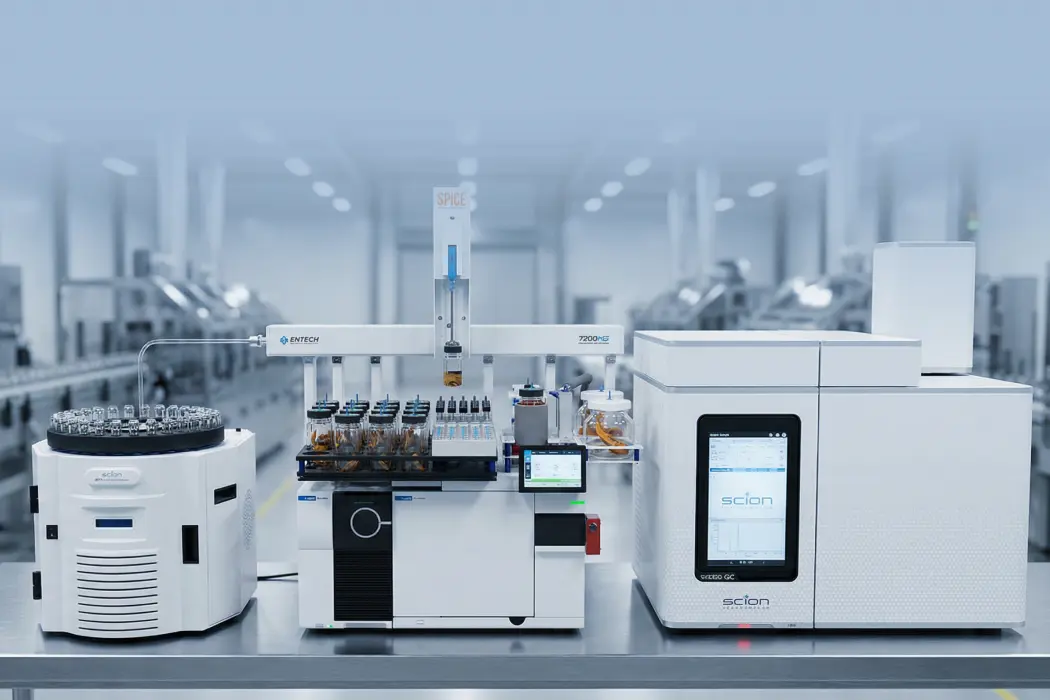In today’s world, where we rely heavily on energy for almost everything we do, the quality of petroleum products like gasoline, diesel, and jet fuel is significant. Good fuel quality ensures that our cars, machinery, power generators and industrial equipment run smoothly. That’s why petroleum testing equipment is so essential. It helps us check and maintain the quality of these fuels. In this blog, we’ll explore why petroleum testing equipment is important for ensuring fuel quality, the key components of this equipment, and the role of Petroleum Testing Equipment suppliers in the industry.
The Importance of Testing Fuel Quality
Before we get into the details of petroleum testing equipment, let’s take a moment to understand why fuel quality is so important:
- Safety and Reliability: Poor-quality fuel can cause engines to break down, work less efficiently, and even result in accidents. Making sure the fuel is of high quality helps prevent these problems and ensures that vehicles and machinery operate reliably.
- Environmental Impact: Low-quality fuel produces more pollutants, which harms the environment. High-quality fuel reduces these emissions and helps protect our planet.
- Compliance with Standards: Governments set strict rules for fuel quality to protect people and the environment. Fuel producers and distributors must follow these rules, and petroleum testing helps ensure they do.
- Performance and Efficiency: Good fuel makes engines run better and last longer. It also helps save money on maintenance and improves fuel efficiency.
Types of Tests Conducted In The Petroleum Testing Laboratory
These tests help ensure the quality and safety of petroleum products, as well as compliance with regulatory requirements and industrial standards.
These tests include:
- Physical properties tests
- Chemical composition tests
- Contaminant tests
- Corrosion tests
- Performance tests
- Environmental tests
- Specialized tests
Key Components of Petroleum Testing Equipment
Petroleum testing equipment includes various tools designed to check different aspects of fuel. Here are some key components:
- Density and Specific Gravity Analyzers
These tools measure the density and specific gravity of fuel, which helps determine its energy content and quality. - Viscosity Testing Equipment
These tools measure the density and specific gravity of fuel, which helps determine its energy content and quality. - Flash Point Testers
Flashpoint testers find out the lowest temperature at which fuel can ignite. This is crucial for safety during storage and transport. - Sulfur Content Analyzers
Sulfur is invariably present in petroleum products, feedstock and crude oil. Several analytical methodologies are available to determine the sulfur content from trace level to percentage level. EDXRF Sulfur in Oil Analyzers as per ASTM D4294 and ASTM D5453 are the best available instruments to measure sulfur percentage from low to higher range in all types of petroleum and biofuel products. Sulfur in fuel needs to be low to meet environmental laws. High sulfur content leads to harmful emissions and reduces its price value as well. These analyzers ensure fuel has the right amount of sulfur as per international standards. -
Octane and Cetane Number Analyzers
These tools measure how well fuel burns in engines—octane for gasoline and cetane for diesel. Higher numbers mean better performance and efficiency. -
Water and Sediment Content Analyzers
These analyzers detect water and sediment in fuel, which can cause engine problems. Ensuring these are minimal helps keep engines running smoothly.
Future Trends in Petroleum Testing
The field of petroleum testing is evolving with advancements in technology:
- Advanced Analytical Techniques: New methods like spectroscopy and mass spectrometry provide more precise fuel analysis.
- Automation and Digitalization: Technologies such as IoT and AI are making petroleum testing faster and more accurate.
- Sustainable Fuel Testing: With the rise of alternative fuels, there’s an increasing need for equipment that can analyze biofuels, hydrogen, and other renewable energy sources.
The Role of Petroleum Testing Equipment Suppliers
Petroleum Testing Equipment suppliers are essential partners in maintaining fuel quality. They provide advanced tools, support, and training to fuel producers, refineries, and testing labs. Here’s how they contribute:
- Providing Advanced Equipment: Suppliers offer the latest testing equipment, which helps ensure accurate and efficient fuel testing.
- Maintenance and Support: Good suppliers offer maintenance and technical support to keep the equipment working well.
- Training and Consultancy: Many suppliers train their clients on how to use the equipment and understand the results, ensuring accurate fuel testing.
- Customization: Suppliers often provide customized solutions to meet the specific needs of their clients.
In conclusion, petroleum testing equipment ensures fuel quality across various sectors. By providing accurate and reliable analysis of fuel properties, these tools help maintain safety, compliance, performance, and environmental sustainability.
Investing in high-quality petroleum testing equipment is not just about meeting regulations; it’s about ensuring reliable, efficient, and sustainable fuel use. Whether you are a refinery operator, fuel distributor, automotive manufacturer, or involved in any other aspect of the petroleum industry, using advanced testing equipment is key to achieving excellence in fuel quality management.



